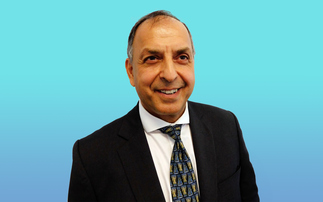Policy exclusions and trust are secondary to cost as barriers to protection purchase, Mintel and Global Market Insite (GMI) statistics have shown.
The joint research also showed 60% of 241 intermediary respondents said economic difficulties were the biggest hurdle when selling protection to clients.
Toby Clark, director of research at EMEA, presented the findings at yesterday's Protect conference, and said: "Protection products are discretionary to a degree. They can be cancelled without a massive impact on daily life style if finances are squeezed. But that gap is making consumers feel quite insecure."
The figures showed 30% of consumers said they were a little bit worse off this year, 12% said they were much worse off; the biggest proportion of 54% were concerned about finances but thought they would be ok.
Clark said this was a positive time for the protection industry given people were wary, wanted to be protected but did not have much financial income to protect their families.
He said: "There has been a huge protection gap for as long as we have been living in the market and that is not getting better.
"What we get from focus groups and intermediaries is that people think protection is more expensive than it actually is. It is about getting people to understand where they are getting value and their money's worth."
Only 5% of the 1,929 consumers surveyed, who were internet users aged 18 and above, were fully protected with a mix of different product types. And an even smaller 3% had income protection. Elsewhere 11% had critical illness cover.
Clark said, speaking to protect delegates: "Gender and Solvency II will push up premiums which does not help squeezed consumers.
"On the positive though benefit reforms means people are realising more and more that they cannot afford to rely on the state. The down side is they are not protecting themselves at the moment either."
The Mintel/GMI intermediary research showed 38% citing lack of consumer awareness of protection products as this biggest barrier; and 42% said consumer-focused marketing to raise awareness would be the biggest assistance to selling.
Simplifying application processes would be the biggest sales support according to 41% of intermediaries, while 35% said improved underwriting processes, 30% said cheaper products and 26% saw ease of selling if products were more flexible.
Advice when buying protection products was important to 57% of consumers, the research showed.
A Protect delegate asked Clark if brand was a big part of consumer trust. Clark said it was products in the industry rather than brand that were not trusted, as people seemed "pretty scathing" across the whole spectrum.
Policies have too many exclusions according to 59% of consumers with only 2% disagreeing. But people liked the idea of being protected and could see the benefits, according to the research.
"They are open to the message but they are not sure about where to buy these products and how to go about it," Clark added.
Another audience question asked if the research had been shared with the regulator.
Clark said it had, adding: "A lot of the time the regulator does not understand product and mind set. Regulating the product out of reach of the average consumer becomes totally counter-productive."











